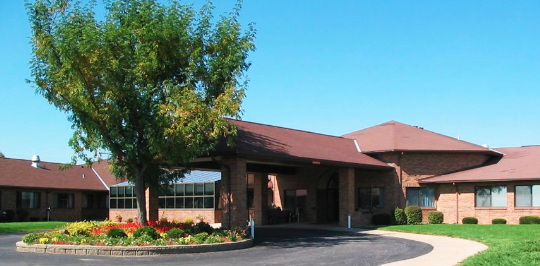Remember telling dad: “I love you” and the response was “yeah”? Yet he would be the first to want to go fishing with you! People show their love differently, especially as they age, and may become frustrated by physical or mental limitations. So children may step up to help fill a role as caregivers resulting in an outright role reversal of parent and child. Parents dependent upon their children may cause parents to be embarrassed, frustrated, depressed, and/or feel a loss of pride.
Adult children may resent having to take on full-time or part-time caregiving, which pays nothing but is as strenuous as any day job one could imagine. Many of these adult children have families of their own that stretch their time, stamina, money, and emotions. Many grown children feel a profound sense of loss as they witness the deterioration of a once robust, vibrant parent who embodied the essence of strength, safety, wisdom, and comfort in their young minds.
Clearly, the role reversal that comes with aging and caregiving strains the parent-child relationship and puts it on difficult and unfamiliar turf. Because the relationship between you and your parent has changed dramatically, you may need to explore new ways of expressing love and receiving love that is appropriate to you and your parent’s current position and transform roles
In his 1995 book, “The Five Languages of Love” psychologist Dr. Gary Chapman, proposed that each person has a primary way of giving and receiving love, called a “Love Language”. According to Dr. Chapman, people usually employ the same Love Language both the giving and receiving modes. In the realm of aging and caregiving, Dr. Chapman’s theory provides a framework for understanding our aging parents’ behavior and motivations, and our relationships with them, even in circumstances that are very trying.
What Love Language Does Your Parent Speak?
To get a sense of your parent’s innate Love Language, think back to your childhood and how your parent expressed love to you and other close family members. Did your dad love to take you on fishing trips but have a hard time saying the words, “I love you.” If so, your father might speak the Love Language of Quality Time.
Did your mother insist on giving you a hug and kiss every time you stepped out the door, even if you were only going to play with the kid who lives next door? Your mother might be a speaker of the Love Language of Physical Touch.
Of course, no one speaks exclusively one Love Language, we all speak a bit of each, but Dr. Chapman believes that people have one dominant Love Language. He says, “While each of these languages is enjoyed to some degree by all people, a person will usually gravitate strongly towards one. Below are Dr. Chapman’s Five Love Languages with remarks about their relevance to caregivers.
1. Words of Affirmation
Some elderly parents need to hear their family caregivers say, “I love you,” and other verbal reassurances of approval and affirmation. They crave these words like a decadent dessert. For seniors who favor receiving love verbally, it’s not enough for your affection to be implied through general friendliness, gift-giving, or even hugging and hand-holding.
2. Quality Time
Parents whose favored mode of receiving love is quality time will appreciate moments when they have your undivided attention when you are together enjoying each other’s company without distractions. If this is important to your parent, set aside time each week to just be with your parent, and don’t look at it as caregiving. Turn off your smartphone, get rid of distractions like the TV and side conversations, and get together with your parent in the sitting room or over the dinner table for one-on-one time.
3. Giving and Receiving Gifts
If your mother loved sharing flowers from her rose garden with everyone she visited or if your father steadfastly mailed newspaper articles he thought you might find interesting, your parent might be a speaker of the Love Language of Gifts. So, surprise your loved ones with an unexpected gift or card periodically to remind them of your love.
4. Acts of Service
Acts of Service is a Love Language commonly associated with men. The stereotype is the man who does handy work around the house as a way of showing love for his lady-friend. Of the five Love Languages described by Dr, Chapman, this one should come most naturally to the caregiver. As any caregiver will tell you, caregiving for a parent is a near-continuous act of service. Parents who speak this Love Language will interpret your dedication and assistance as acts of love and are likely to be especially appreciative of your help.
5. Physical Touch
For many people, there is no love or affection without touch. If your parent is the touchy type, he or she will feel loved, comforted, and calmed when you make it a habit to hug your parent regularly, pat your parent on the back, or hold hands.
What love language do you speak? How about your parent?
For more information, contact Living By Your Design, Inc., focusing on the issues of Older Americans: legal, financial, free guidance for residential placement, and healthcare issues. Call: 309-285-8088. Website: www.LivingByYourDesignInc.com. Location: 809 W. Detweiller Dr., Peoria, IL 61615.
Check out more of our articles in the Healthy Cells Greater Peoria Metro Area online issue today.
Saying “I Love You”?
Peace of Mind
Love & Compassion
ARTICLES SUBJECTS
OUR FACILITIES
Lacon Rehab and Nursing
St. Joseph’s Home of Lacon is a skilled nursing facility located just north of Peoria, IL.
St Augustine Manor
St. Augustine Manor is a not-for-profit independent living community for seniors 55 years of age and older.
Snyder Village
Founded in 1988, Snyder Village's mission is to provide for the physical, emotional, and spiritual needs of persons requiring assistance…






